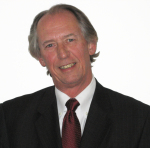Updated
Western Sahara: Why Encourage False Hopes – Robert M. Holley

Robert M. Holley, Senior Policy Adviser, MACP
Robert M. Holley, MACP
November 11, 2013
Last week, HM King Mohammed VI delivered a speech on the 38th anniversary of the Green March—the day that thousands of Moroccans descended on Western Sahara to reclaim their territory from the Spanish colonizers. If you’ve had the chance to read the King’s words, you may have sensed that tensions have mounted recently between Morocco and its Algerian and Polisario detractors, who are backed by others with not so well-concealed pro-Polisario agendas.
In some important measure, we have Washington to thank for this.
That’s because Washington, is actively feeding the problem by continuing to provide false hope to those who see no compelling reason to embrace the idea of compromise and search for a reasonable middle ground to finally resolve the Sahara conflict and move on to much bigger issues besetting the Maghreb these days. How so?
Washington continues to give unworthy currency to the mistaken idea that Morocco has been seriously misbehaving on fundamental human rights issues in the Western Sahara while simultaneously giving both Algeria, and most especially the Polisario Front, a free ride on the more genuine human rights concerns about those abominable refugee camps run by the Polisario in southern Algeria.
This seemingly intentional silence about widespread Polisario abuses of the most elementary human rights of the refugees in those camps reflects poorly on the credibility of any US appreciation of the actual human rights circumstances throughout Western Sahara. It certainly detracts from the worthiness of whatever legitimate counsel the US might offer Morocco on the question. And it fails to deal with the core issue and resolve this problem.
The fact is, so long as Algeria and the Polisario Front believe they can avoid having to address the larger political issue on how best to solve this problem through some reasonable, consensual compromise — such as that offered in 2007 to the UN by Morocco, which was judged as realistic, credible and serious — the longer it will distract everyone from the core issues that truly require attention.
I understand that Washington is doing its best to disentangle itself from the troubles and travails of the MENA region. How and/or whether it should be doing that is another debate.
However, just now, what it is doing on Western Sahara and our abiding relationship with Morocco is nearly certain to make matters worse, not better.
The US relationship with Algeria, never easy, is largely a transactional affair. They have oil and gas and we like to at least think they are, or could be, a significantly contributing partner in the war on terrorism in North Africa. The first is self-evident. The second, I think, much less clear. But do we really need to encourage or ignore their mischief making for Morocco in Western Sahara to sustain this transactional exchange? I think not. It will only lead to further aggravation in an already fragile region.
Our relationship with Morocco, on the other hand, is old, deep, faithful, and habitually friendly. It is not based on fleeting commercial interests. Rather, it is based on an historic affinity for one another dating back to the founding of the United States and still securely anchored in shared values — and today, more than ever, a shared vision and commitment to progress, reform and security in a troubled region.
We say that Morocco’s good faith commitment to a solution in Western Sahara — based on broad autonomy for its people under Moroccan sovereignty — is “serious, credible and realistic.” This has been the mantra of three successive US presidents. It is what we say, but it is not what we practice.
Unless we wish to see the problem become more complicated and even more difficult to resolve, it is time that we stopped doing more harm than good (as any good physician would counsel) and more seriously consider how we can more effectively get our actions to square up with our words.
Robert M. Holley is Senior Policy Advisor for the Moroccan American Center for Policy, MACP